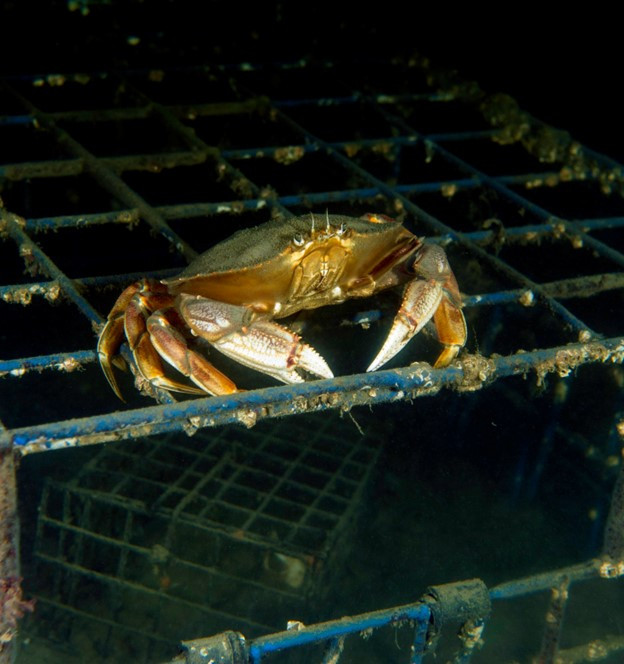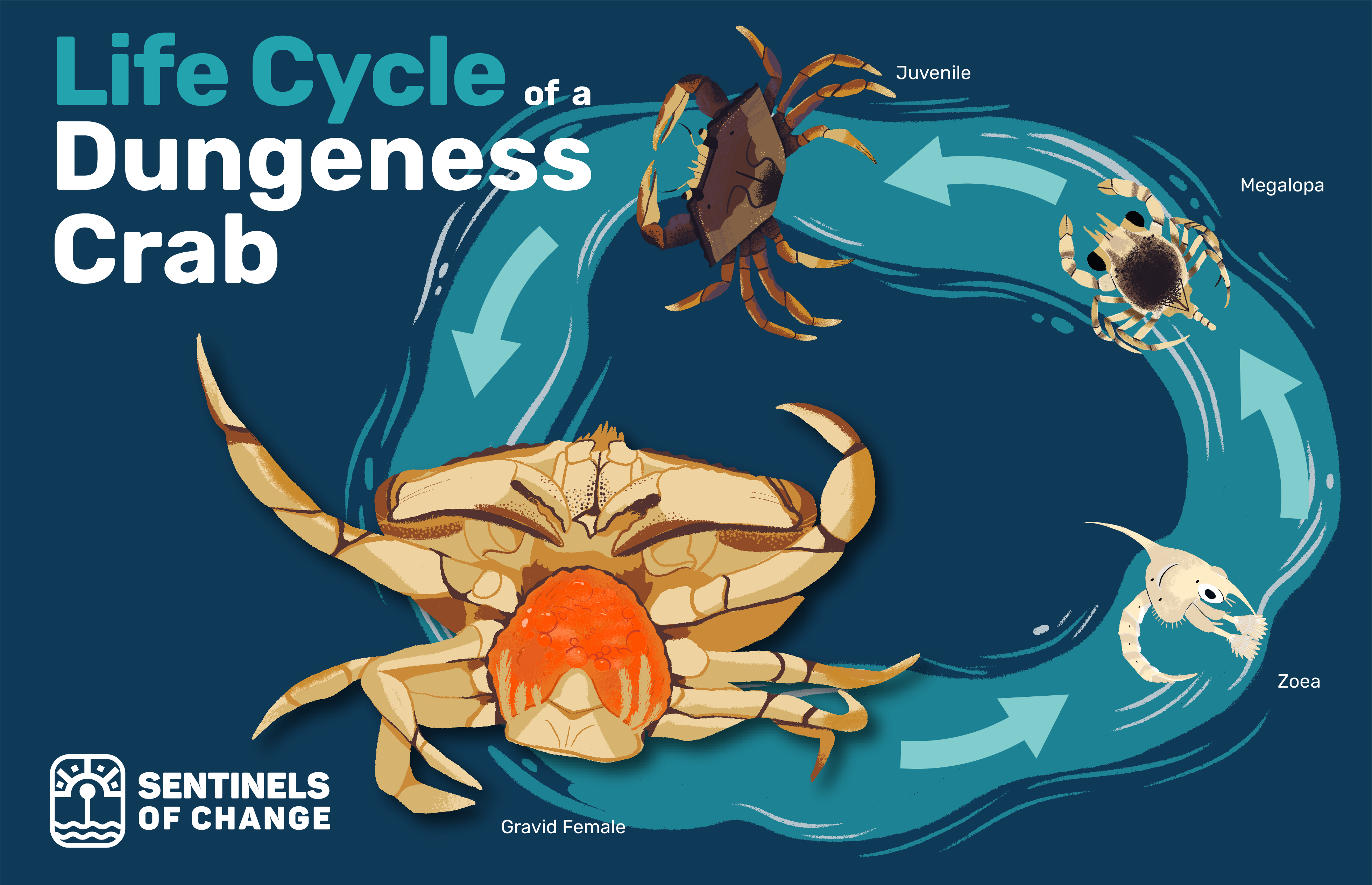Light Traps
The Salish Sea supports an impressive diversity of marine invertebrates which play central roles in food webs and fisheries throughout the region. Our broad objective is to improve our understanding of regional and temporal patterns of marine invertebrate dispersal and connectivity, with a particular focus on the recruitment dynamics of Dungeness crab, a species of critical ecological, cultural, and economic importance. Like other marine invertebrates, Dungeness crab populations face numerous threats from global issues such as ocean acidification and warming to localized pressures such as fishing and coastal development. By improving our understanding of the reproduction, dispersal, and recruitment of marine invertebrates in our inland sea, we can provide information to managers and decision makers to help sustain healthy ecosystems and communities.

Many marine invertebrates, including Dungeness crab, have pelagic life stages that take them on an oceanic journey before they settle into life on the seafloor. Often, these early larval stages look, behave, and experience life quite differently from the adult forms we are familiar with. The timing of arrival and spatial distribution of young crabs are key to replenishing populations each year, and the number of new recruits has been shown to predict the abundance of adult Dungeness crabs years later. This project tracks dispersal patterns using light traps. Many marine invertebrate larvae, including crabs, are attracted to light. Light traps take advantage of this behaviour and allow us to trap and track Dungeness megalopae, the last larval crab stage before they stop swimming and start crawling.

Working with communities and partners, we are establishing a network of light traps throughout the Salish Sea. This project complements an existing project led by the Pacific Northwest Crab Research Group in the southernmost portion of the Salish Sea where a collection of partners from tribal, state, and federal governments, as well as NGOs and academia, have deployed their own network of light traps. Click here to read more about our community partners.
Sentinels of Change is a contributing member to the Pacific Northwest Crab Research Group. Learn more about the PCRG light trap program here.


Calling all Community Scientists!
Our light trap network relies on a large group of incredible volunteers who check traps daily throughout the dispersal season. These dedicated volunteers count, catalogue, photograph, and release the tiny invertebrates that entered each light trap overnight. You can view some of the tiny marine babies we have observed, in the Larval Invertebrate Gallery below.
If you are interested in learning more about your local marine ecosystem by helping sample any of the light traps displayed on the map below, please email sentinels@hakai.org with the subject: "Light Trap Volunteer". False Creek Vancouver Volunteers can apply directly on this page.. Mayne Island Volunteers can learn more here.

Larval Invertebrate Gallery
Visit our Sentinels of Change Light Trap Monitoring page on iNaturalist to see more observed species!






















